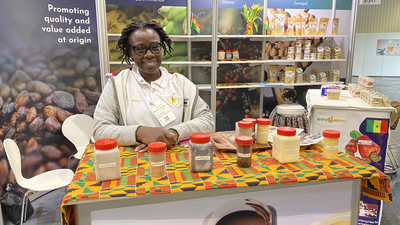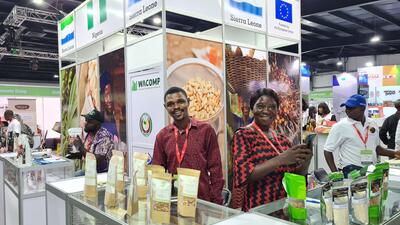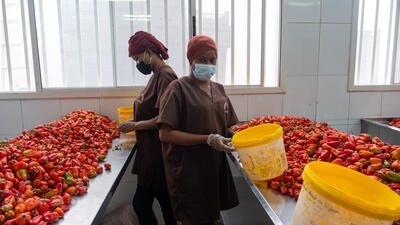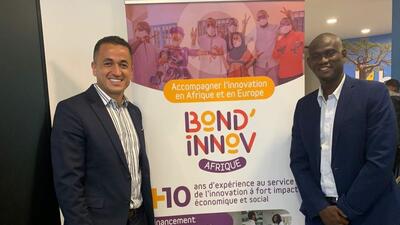Improved access to finance for MSMEs in Senegal's mango sector (en)
ITC’s Access to Finance for SMEs Programme was set up to assist SMEs to obtain finance. To this end, the programme helps SMEs improve their financial management and business plan development skills by partnering with trade support institutions and local financial-management counsellors. Financial institutions also partner with SMEs and offer them favourable lending conditions. Guarantee funds and/or lines of credit are facilitated with development banks and agencies to cover risks related to lending to SMEs.
Of the 70 business plans for SMEs in Benin which have been submitted to Bank of Africa (BOA), Banque Régionale de Solidarité (BRS) and Fonds National de Microfinance (FNM), 41 SMEs have been pre-approved for loans and are being assessed for guarantee funds from the French Development Agency (AFD) and Fonds GARI (West African Development Bank). In Zambia, more than 30 of the 50 business plans developed for SMEs and submitted to Investrust Bank and Zanaco Bank have been approved. In Uganda, 40 coffee farmer associations which are members of NUCAFE are receiving technical assistance from 20 ITC-trained financial-management counsellors as part of the NTF II project designed to promote Ugandan coffee exports.
As part of the NTF II project in Senegal aiming to promote mango exports, ITC and ASEPEX (Senegalese Export Promotion Board) are helping micro, small and medium-sized enterprises (MSMEs) and cooperatives improve their access to finance. Twenty MSMEs, the most promising members of the Federal Cooperative of Horticulture Actors of Senegal (CFAHS), will benefit from ITC’s technical assistance in financial management and business-plan development. ITC will use financial-management counsellors from the Centre de Gestion Agréé de Dakar (CGAD), a national business-development services provider, and the Association of Enterprise Development Consultants (ASCDE) to provide that technical assistance.
MSMEs may partner with ECOBANK and Crédit National Agricole du Sénégal (CNCAS), which are interested in building their SME portfolio in the agriculture sector and are offering the most favourable loan conditions (i.e., lowest interest rate of about 8%, open for long-term investments, etc.). They are also benefiting from guarantee funds intended for SME lending by the African Development Bank (AfDB), USAID and the Spanish and Danish development agencies.
Compagnie Nationale d’Assurance Agricole du Sénégal (CNAAS), a government agricultural insurance firm, will cover the risk related to the harvest at a very competitive premium. Colina Sénégal, a private insurance company, has also shown strong interest in guaranteeing the buyer-related risks in EU and U.S. markets.
ITC will collaborate with any programme intended to facilitate access to finance for SMEs in the beneficiary country. The CIDA – Government of Senegal joint Programme for Economic Development of the Niayes Region (PADEN) has agreed to provide grants to MSMEs assisted by ITC. PADEN is mandated to improve producers’ income by helping them to become real entrepreneurs while protecting natural resources. The USAID Economic Growth Project will also share with ITC its experience in agricultural MSME financing in Senegal.















